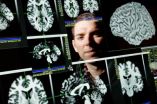(Press-News.org) Databriefing: How long can we expect to live?
An article from John Appleby, Chief Economist at the Kings Fund, published on bmj.com today brings attention to the rising amount of those expected to live to 100 and asks where it will end.
According to the Office of National Statistics there seems to be "no end in sight" as far as the number of UK citizens reaching 100 years old is concerned. Approximately 13% of girls born in 1951 are expected to reach this milestone, increasing to 40% for girls born this year and a predicted 60% of those born in 2060.
Appleby attributes similar worldwide trends to the fact that people are dying at older ages. Deaths in children under five have fallen by 60% since 1970, and surviving early childhood makes it easier to live a much longer life.
Variations between men and women, social groups and countries have, however, remained significant with one UK study finding a difference of 11.4 years (80 years compared with 68.6 years) between women in the poorest and most affluent social classes.
And although "living longer is a good thing", research suggests that gains in life expectancy have more to do with reductions in deaths than reductions in years lived in disability. While life expectancy for women has risen 4.6% since 1990, healthy life expectancy has risen by only 3%.
As more and more people live longer, Appleby asks whether we may find ourselves "scrabbling for resources" but concludes that this is unlikely and there is "no need to panic".
### END
When will we all live to 100?
40 percent of girls born now expected to reach this milestone
2013-01-23
ELSE PRESS RELEASES FROM THIS DATE:
Researchers map emotional intelligence in the brain
2013-01-23
CHAMPAIGN, Ill. — A new study of 152 Vietnam veterans with combat-related brain injuries offers the first detailed map of the brain regions that contribute to emotional intelligence – the ability to process emotional information and navigate the social world.
The study found significant overlap between general intelligence and emotional intelligence, both in terms of behavior and in the brain. Higher scores on general intelligence tests corresponded significantly with higher performance on measures of emotional intelligence, and many of the same brain regions were found ...
Wood on the seafloor -- an oasis for deep-sea life
2013-01-23
This press release is available in German.Trees do not grow in the deep sea, nevertheless sunken pieces of wood can develop into oases for deep-sea life - at least temporarily until the wood is fully degraded. A team of Max Planck researchers from Germany now showed how sunken wood can develop into attractive habitats for a variety of microorganisms and invertebrates. By using underwater robot technology, they confirmed their hypothesis that animals from hot and cold seeps would be attracted to the wood due to the activity of bacteria, which produce hydrogen sulfide during ...
Vitamin D holds promise in battling a deadly breast cancer, Saint Louis University researchers say
2013-01-23
ST. LOUIS -- In research published in the Jan. 21 issue of The Journal of Cell Biology, a team led by Susana Gonzalo, Ph.D., assistant professor of biochemistry and molecular biology at Saint Louis University, has discovered a molecular pathway that contributes to triple-negative breast cancer, an often deadly and treatment resistant form of cancer that tends to strike younger women. In addition, Gonzalo and her team identified vitamin D and some protease inhibitors as possible new therapies and discovered a set of three biomarkers that can help to identify patients who ...
In the land of the free, interdependence undermines Americans' motivation to act
2013-01-23
Public campaigns that call upon people to think and act interdependently may undermine motivation for many Americans, according to new research published in Psychological Science, a journal of the Association for Psychological Science.
Americans are repeatedly exposed to messages urging them to think and act with others in mind, telling us, for example, to act sustainably by bringing reusable bags to the grocery store or to act responsibly by getting a flu shot. Researchers MarYam Hamedani, Hazel Rose Markus, and Alyssa Fu of Stanford University wondered what impact these ...
First global assessment of land and water 'grabbing' published in national journal
2013-01-23
As world food and energy demands grow, nations and some corporations increasingly are looking to acquire quality agricultural land for food production. Some nations are gaining land by buying up property – and accompanying water resources – in other, generally less wealthy countries.
Sometimes called "land grabbing," this practice can put strains on land and water resources in impoverished countries where the land, and needed water, has been "grabbed" for commercial-scale agriculture.
A new study by the University of Virginia and the Polytechnic University of Milan, ...
USDA studies confirm plant water demands shift with water availability
2013-01-23
WASHINGTON, January 22, 2012—Plants can adapt to extreme shifts in water availability, such as drought and flooding, but their ability to withstand these extreme patterns will be tested by future climate change, according to a study by U.S. Department of Agriculture (USDA) scientists and their cooperators.
The study was published this week in Nature by a team of Agricultural Research Service (ARS) scientists led by Guillermo Ponce Campos and Susan Moran and an Australian team led by Alfredo Huete from the University of Technology, Sydney (UTS). This research included ...
Just add water: How scientists are using silicon to produce hydrogen on demand
2013-01-23
BUFFALO, N.Y. — Super-small particles of silicon react with water to produce hydrogen almost instantaneously, according to University at Buffalo researchers.
In a series of experiments, the scientists created spherical silicon particles about 10 nanometers in diameter. When combined with water, these particles reacted to form silicic acid (a nontoxic byproduct) and hydrogen — a potential source of energy for fuel cells.
The reaction didn't require any light, heat or electricity, and also created hydrogen about 150 times faster than similar reactions using silicon particles ...
People seek high-calorie foods in tough times
2013-01-23
Bad news about the economy could cause you to pack on the pounds, according to a new study published in Psychological Science, a journal of the Association for Psychological Science.
The study shows that when there is a perception of tough times, people tend to seek higher-calorie foods that will keep them satisfied longer. When subconsciously primed with such messages, a "live for today" impulse is triggered causing people to consume nearly 40 percent more food than when compared to a control group primed with neutral words.
"The findings of this study come at a time ...
Genomic sequencing identifies mutant 'drivers' of common brain tumor
2013-01-23
BOSTON—Large-scale genomic sequencing has revealed two DNA mutations that appear to drive about 15 percent of brain tumors known as meningiomas, a finding that could lead to the first effective drug treatments for the tumors, report scientists from Dana-Farber Cancer Institute and the Broad Institute.
Surgery and radiation currently are the only treatments for meningiomas – slow-growing, often benign tumors that develop in the membranes surrounding the brain. Meningiomas can grow dangerously large, however, causing seizures and limb weakness, and occasionally are fatal. ...
Circadian rhythms can be modified for potential treatment of disorders
2013-01-23
Irvine, Calif., Jan. 22, 2013 — UC Irvine-led studies have revealed the cellular mechanism by which circadian rhythms – also known as the body clock – modify energy metabolism and also have identified novel compounds that control this action. The findings point to potential treatments for disorders triggered by circadian rhythm dysfunction, ranging from insomnia and obesity to diabetes and cancer.
UC Irvine's Paolo Sassone-Corsi, one of the world's leading researchers on the genetics of circadian rhythms, led the studies and worked with international groups of scientists. ...
LAST 30 PRESS RELEASES:
Kidney cancer study finds belzutifan plus pembrolizumab post-surgery helps patients at high risk for relapse stay cancer-free longer
Alkali cation effects in electrochemical carbon dioxide reduction
Test platforms for charging wireless cars now fit on a bench
$3 million NIH grant funds national study of Medicare Advantage’s benefit expansion into social supports
Amplified Sciences achieves CAP accreditation for cutting-edge diagnostic lab
Fred Hutch announces 12 recipients of the annual Harold M. Weintraub Graduate Student Award
Native forest litter helps rebuild soil life in post-mining landscapes
Mountain soils in arid regions may emit more greenhouse gas as climate shifts, new study finds
Pairing biochar with other soil amendments could unlock stronger gains in soil health
Why do we get a skip in our step when we’re happy? Thank dopamine
UC Irvine scientists uncover cellular mechanism behind muscle repair
Platform to map living brain noninvasively takes next big step
Stress-testing the Cascadia Subduction Zone reveals variability that could impact how earthquakes spread
We may be underestimating the true carbon cost of northern wildfires
Blood test predicts which bladder cancer patients may safely skip surgery
Kennesaw State's Vijay Anand honored as National Academy of Inventors Senior Member
Recovery from whaling reveals the role of age in Humpback reproduction
Can the canny tick help prevent disease like MS and cancer?
Newcomer children show lower rates of emergency department use for non‑urgent conditions, study finds
Cognitive and neuropsychiatric function in former American football players
From trash to climate tech: rubber gloves find new life as carbon capturers materials
A step towards needed treatments for hantaviruses in new molecular map
Boys are more motivated, while girls are more compassionate?
Study identifies opposing roles for IL6 and IL6R in long-term mortality
AI accurately spots medical disorder from privacy-conscious hand images
Transient Pauli blocking for broadband ultrafast optical switching
Political polarization can spur CO2 emissions, stymie climate action
Researchers develop new strategy for improving inverted perovskite solar cells
Yes! The role of YAP and CTGF as potential therapeutic targets for preventing severe liver disease
Pancreatic cancer may begin hiding from the immune system earlier than we thought
[Press-News.org] When will we all live to 100?40 percent of girls born now expected to reach this milestone


